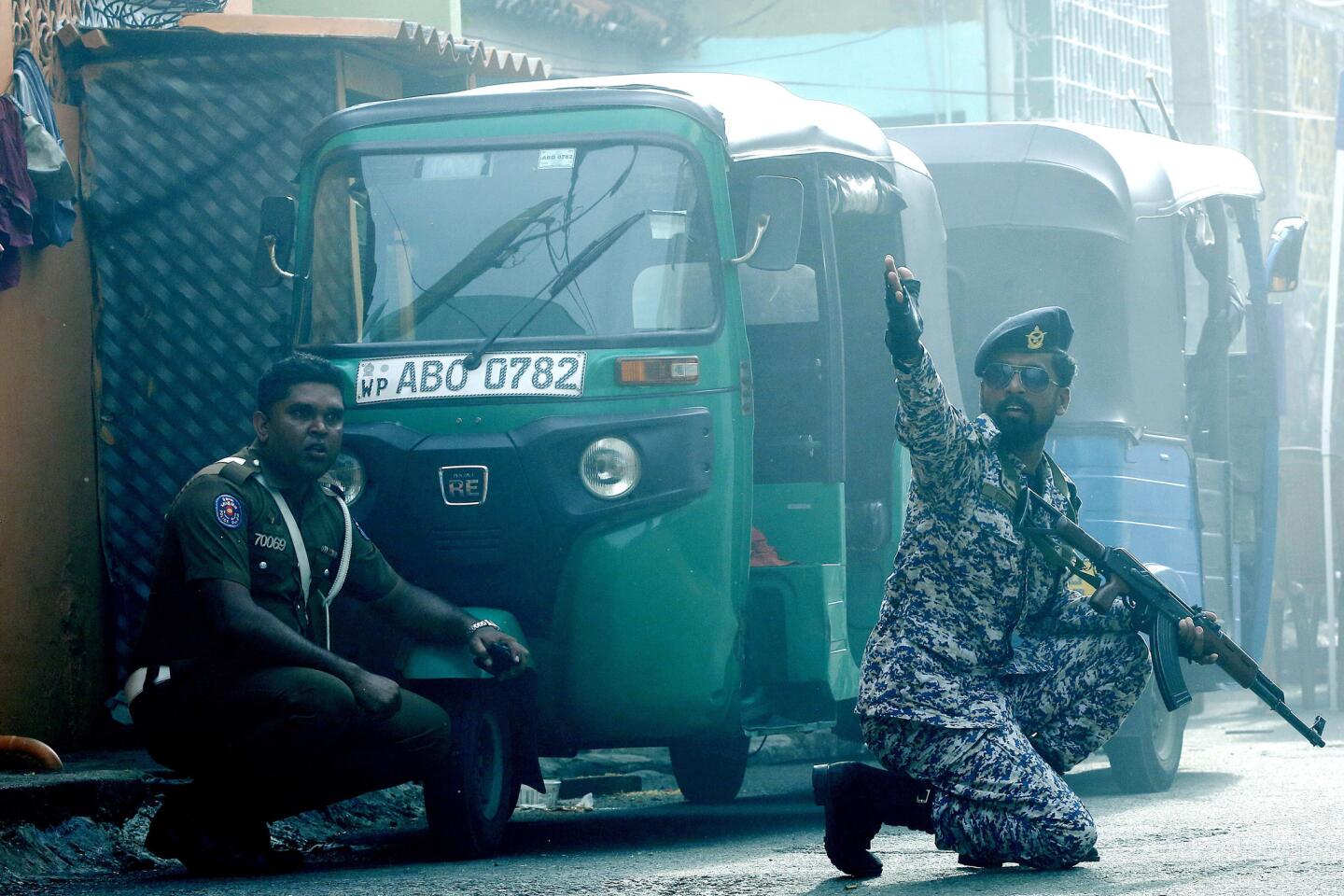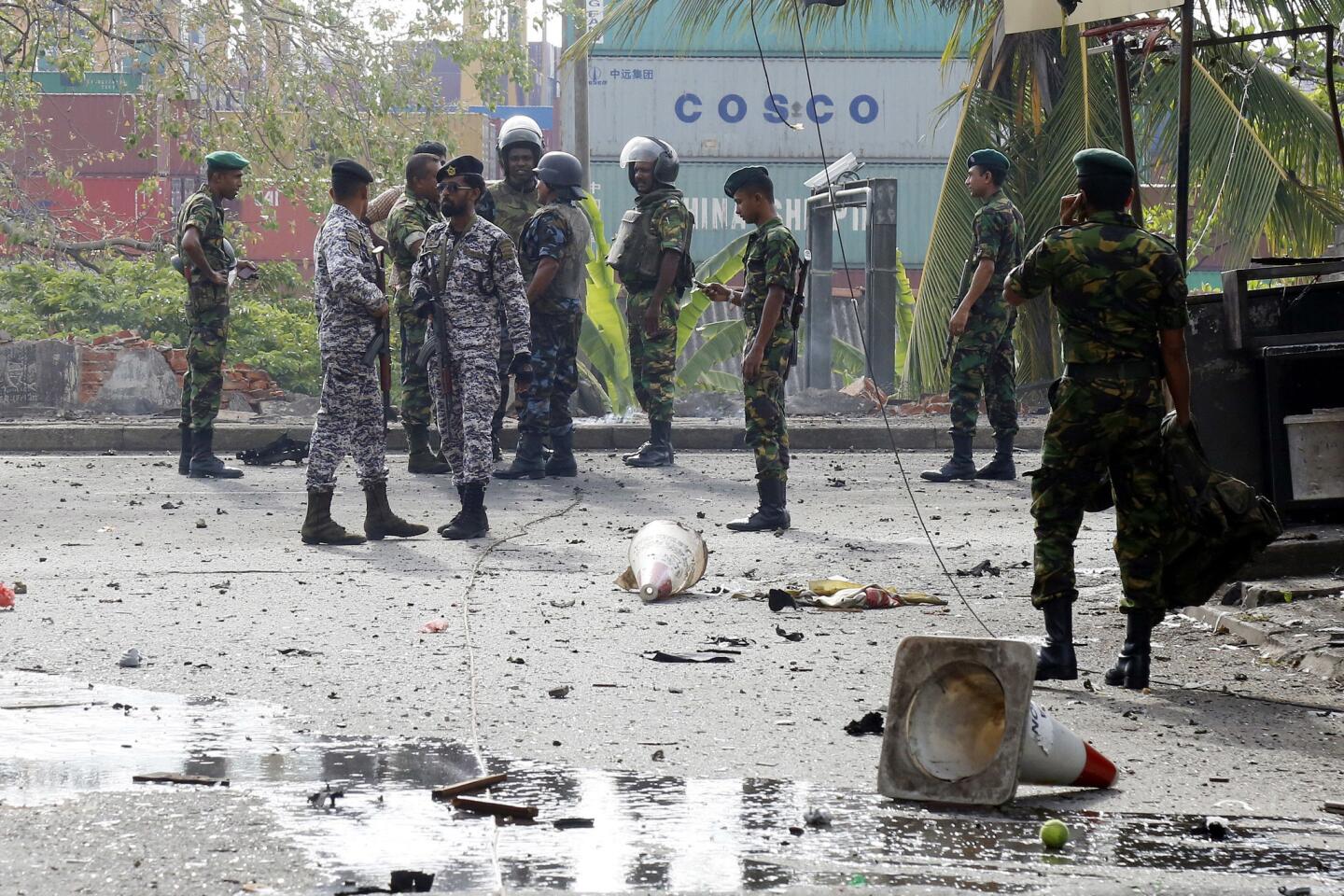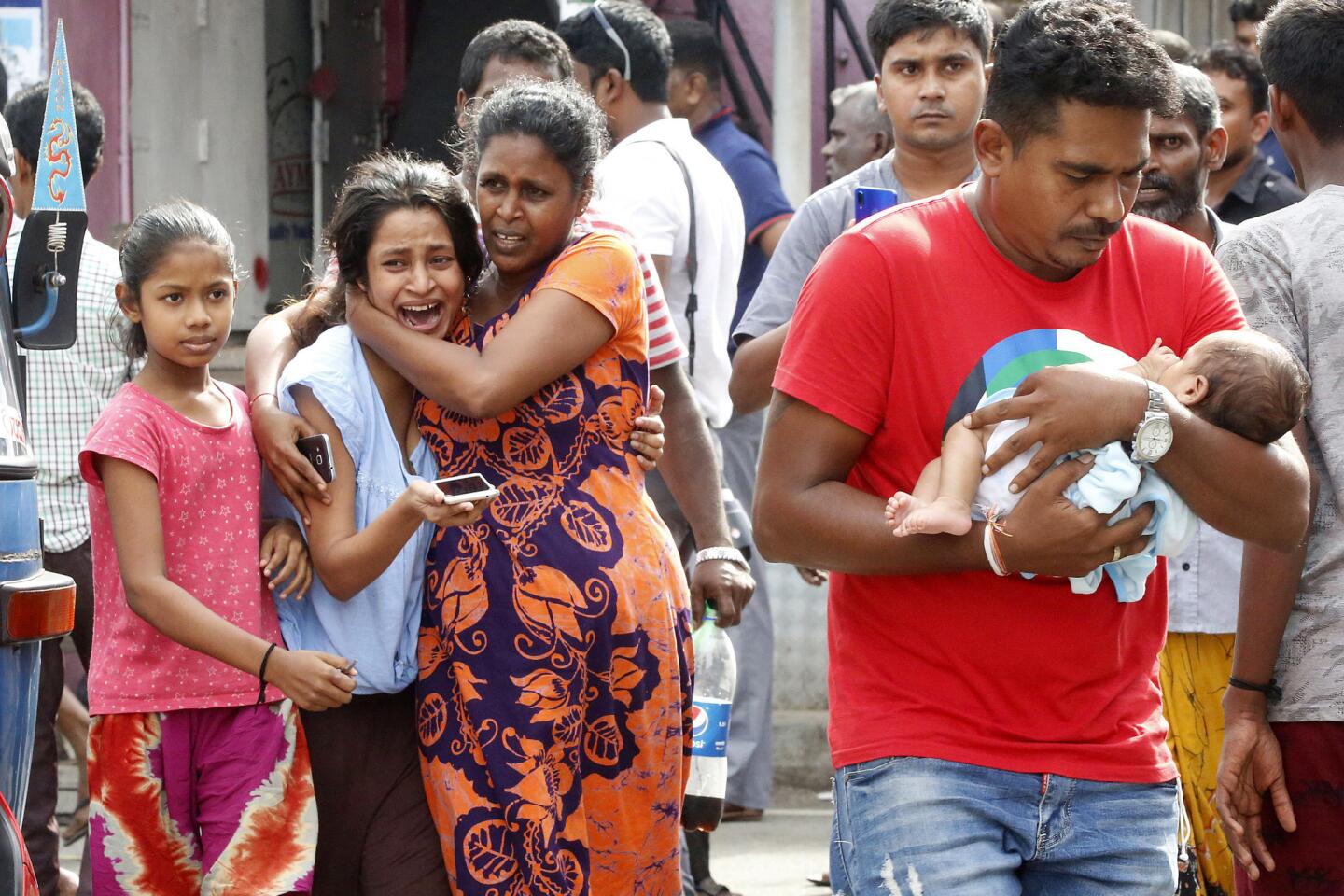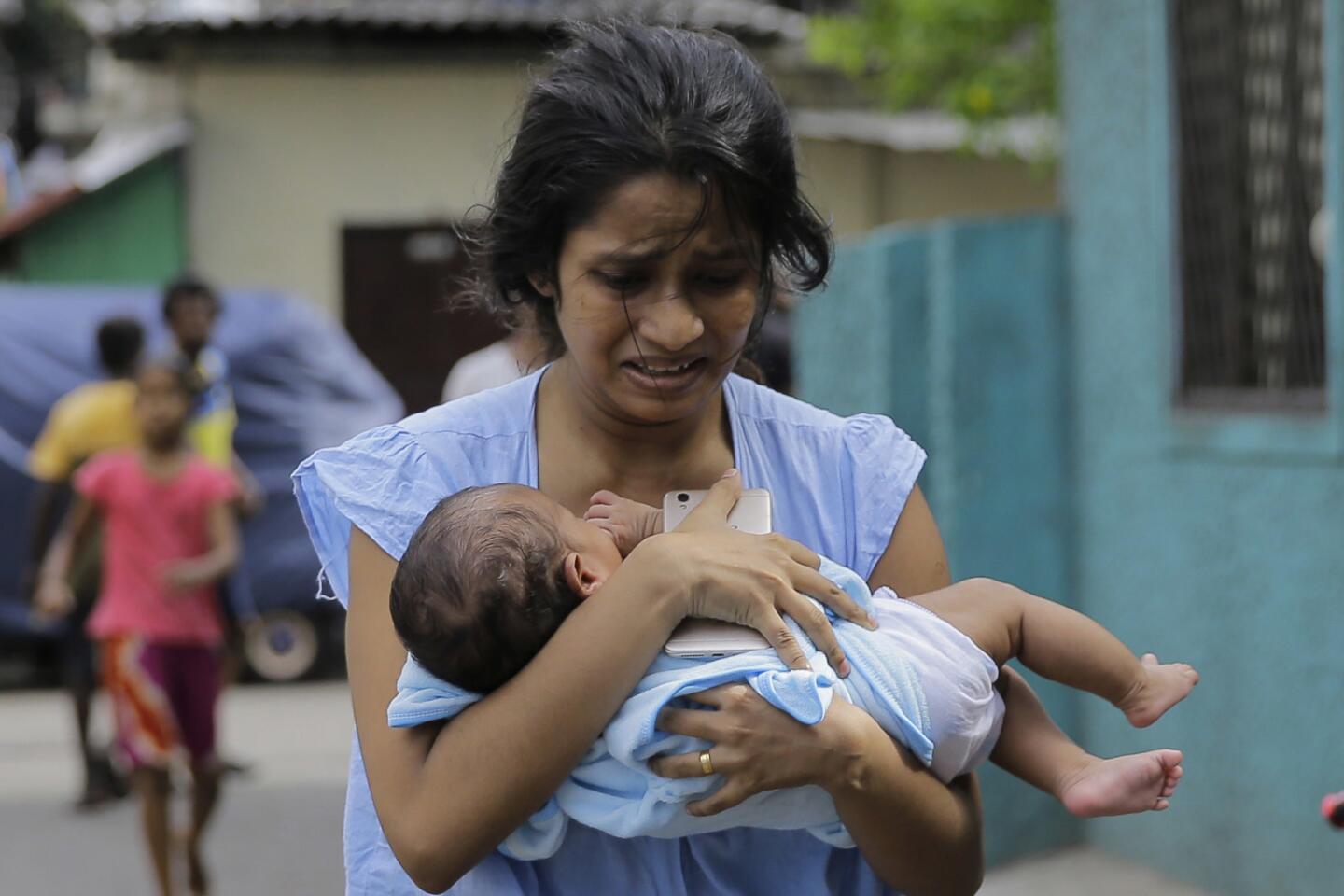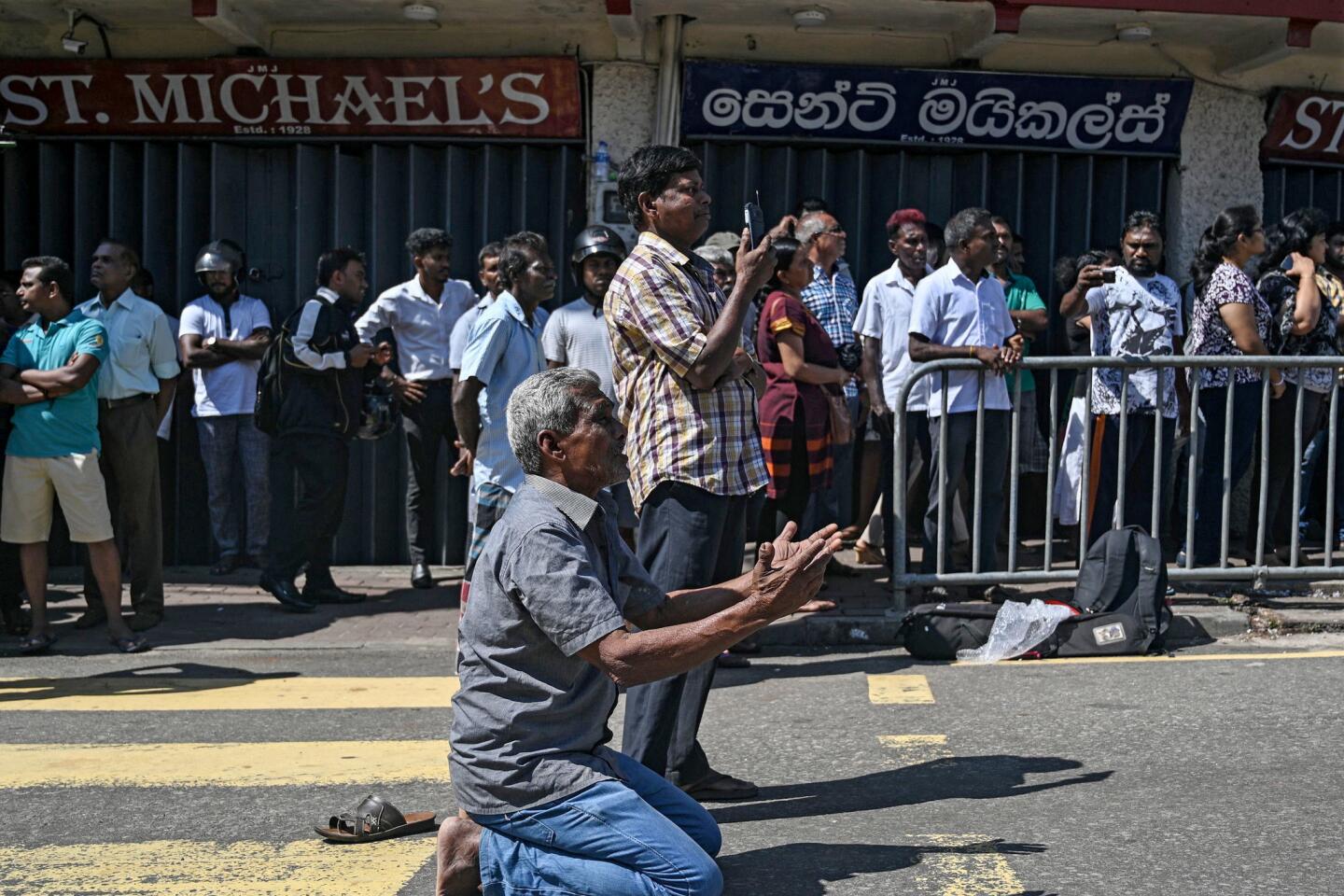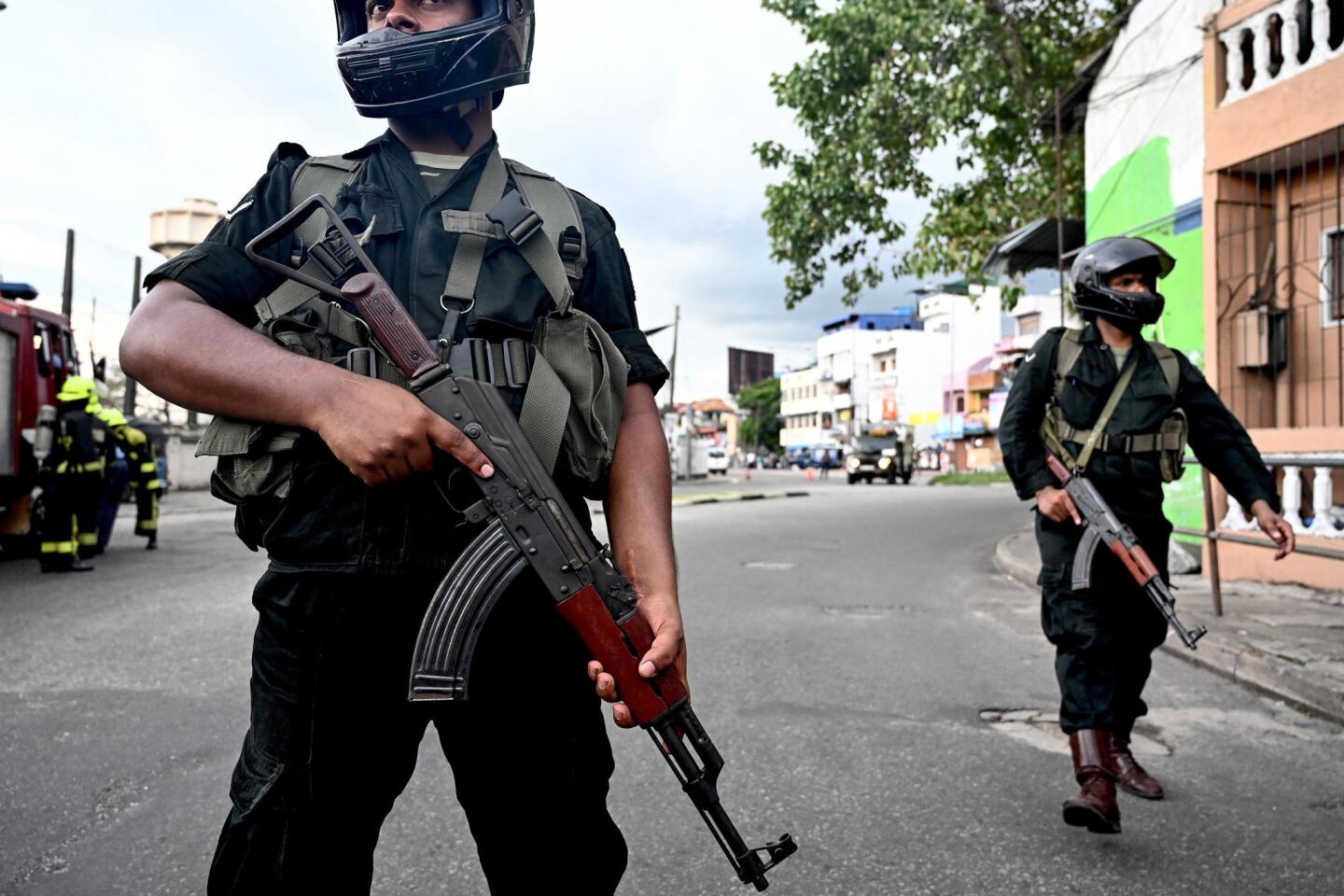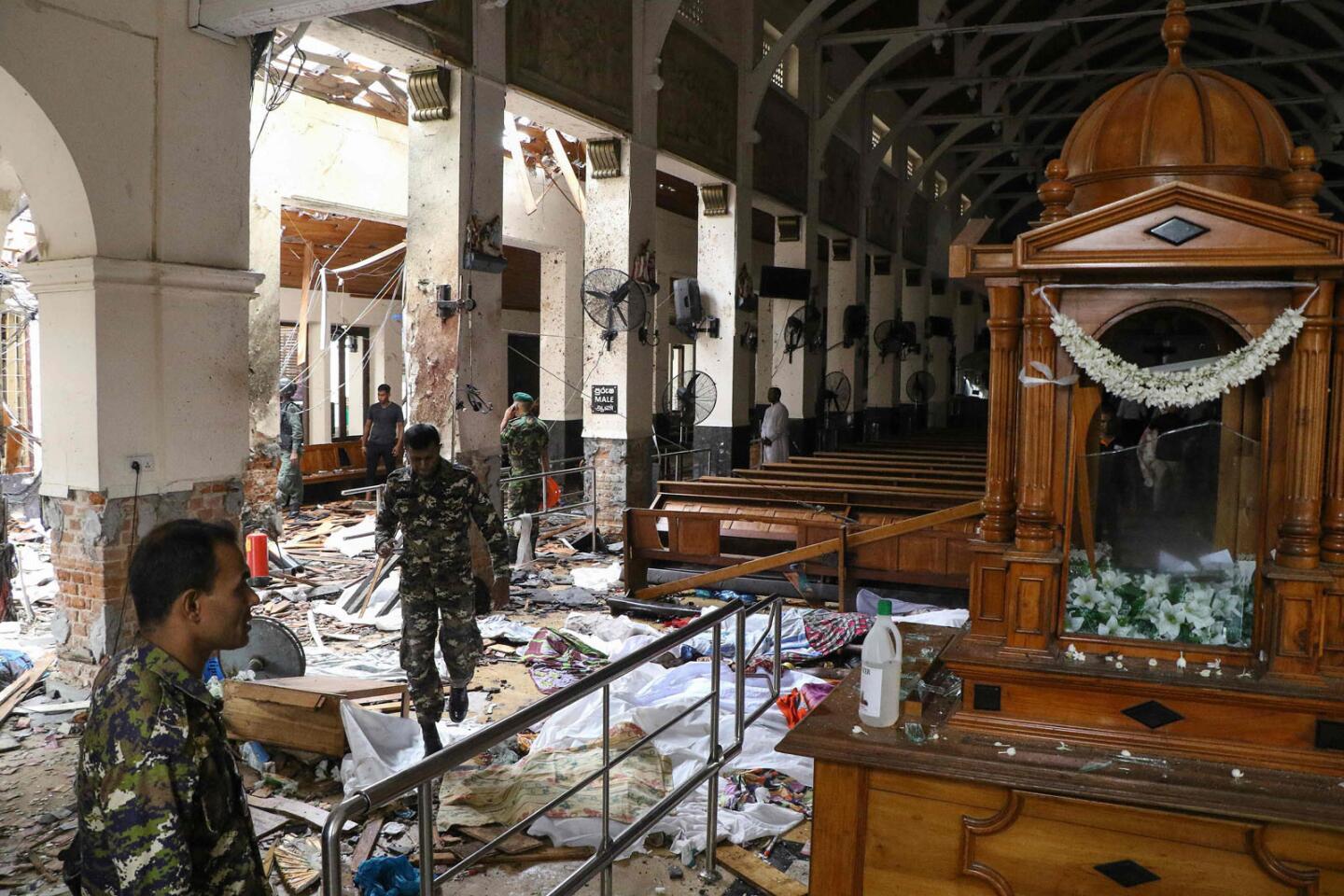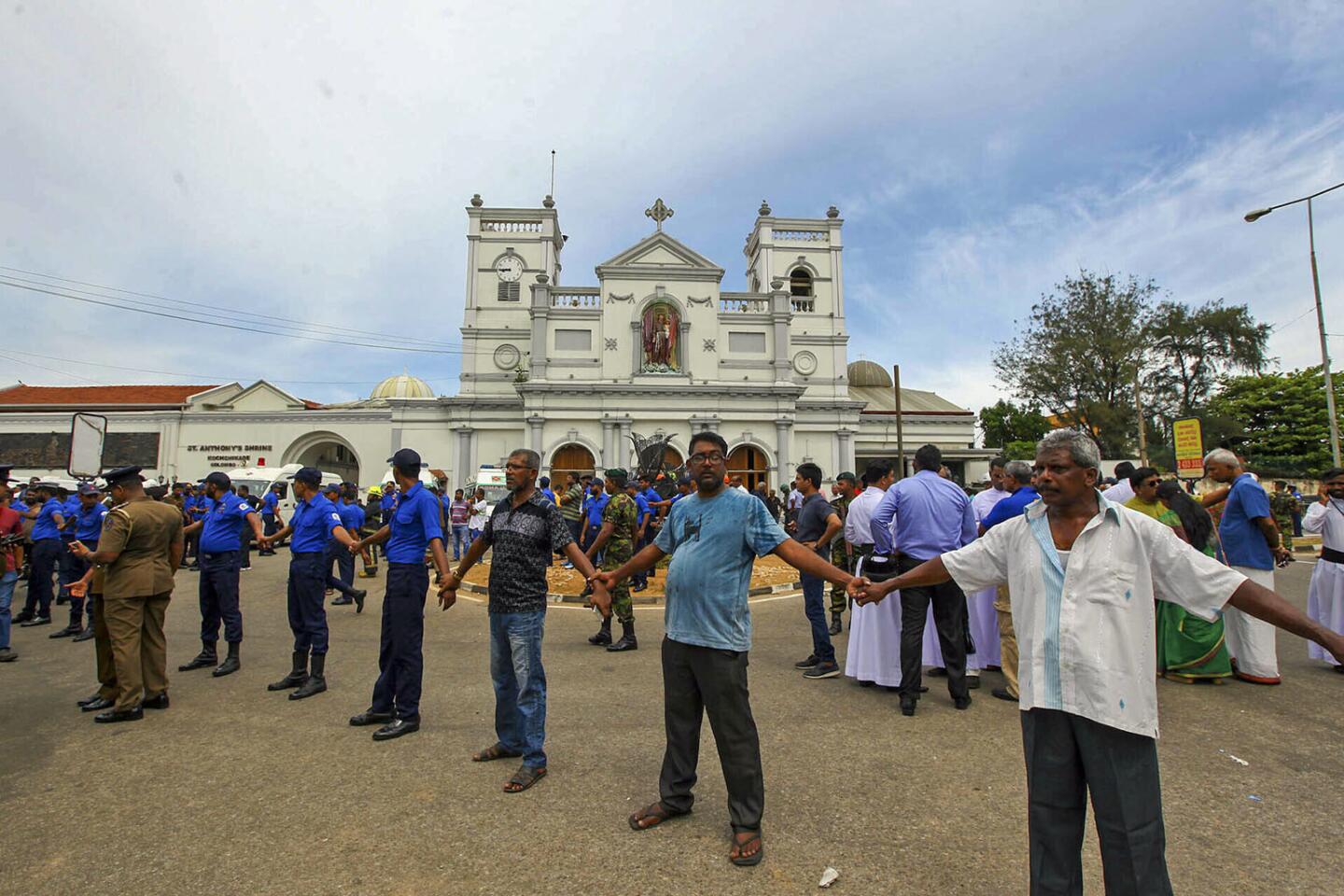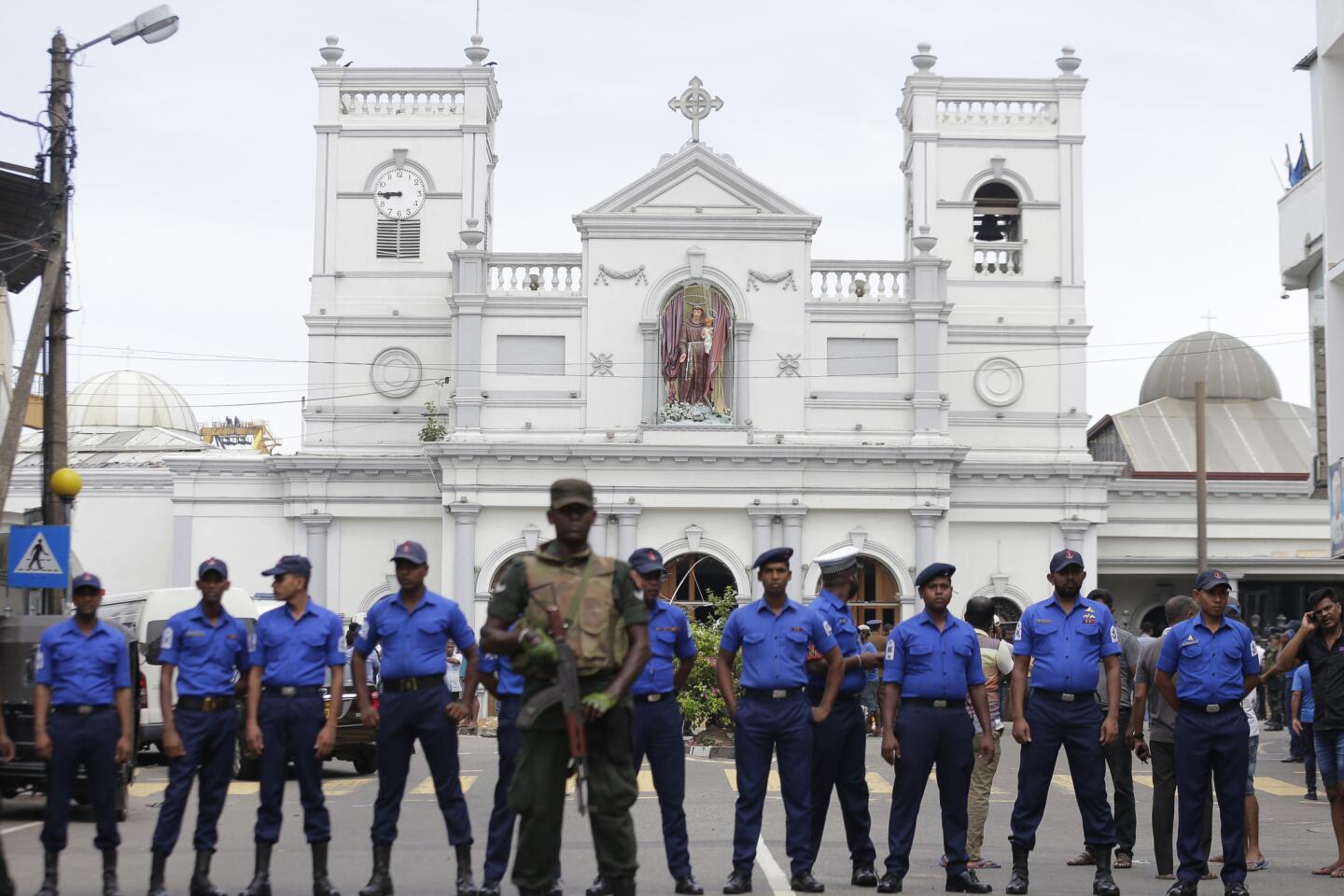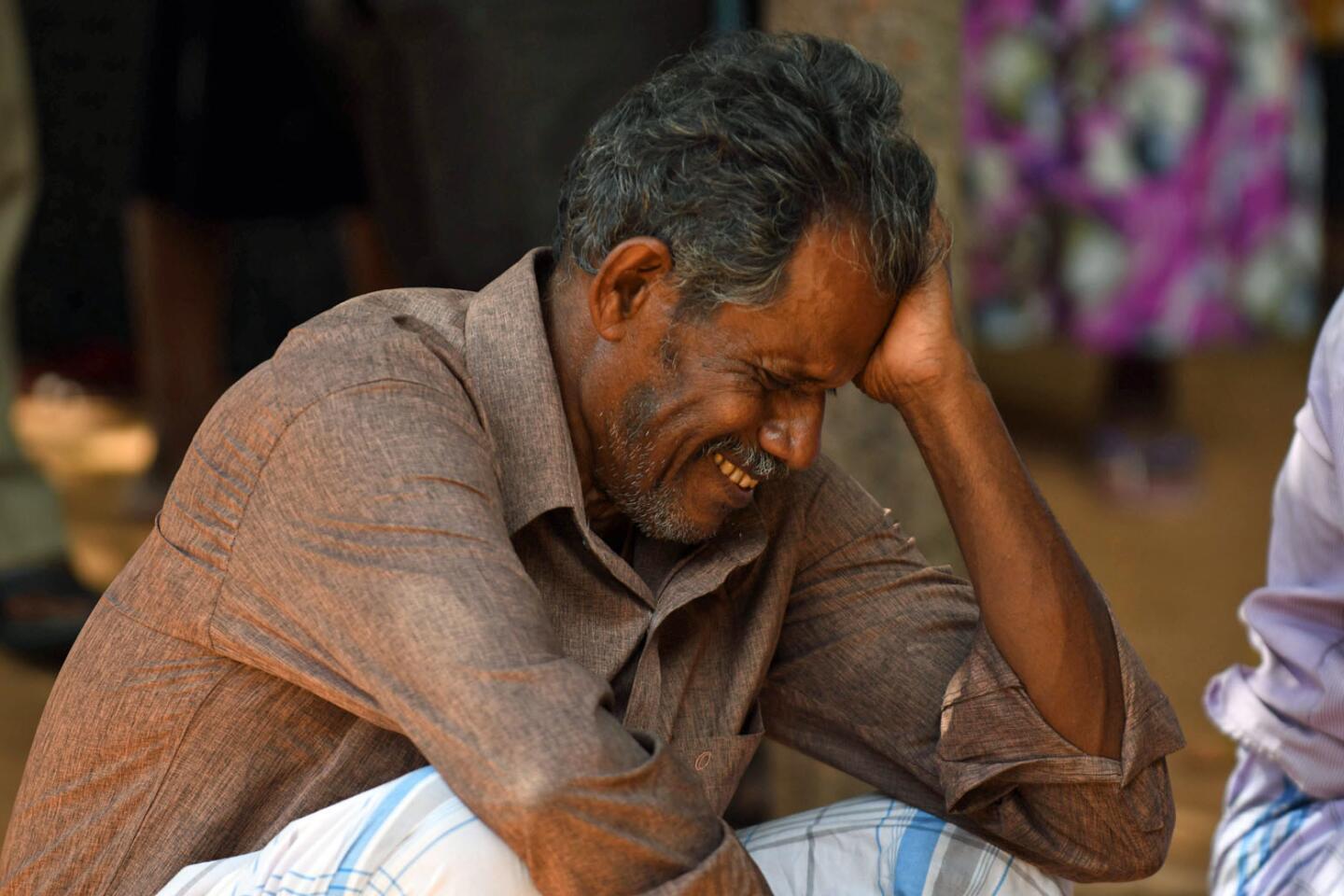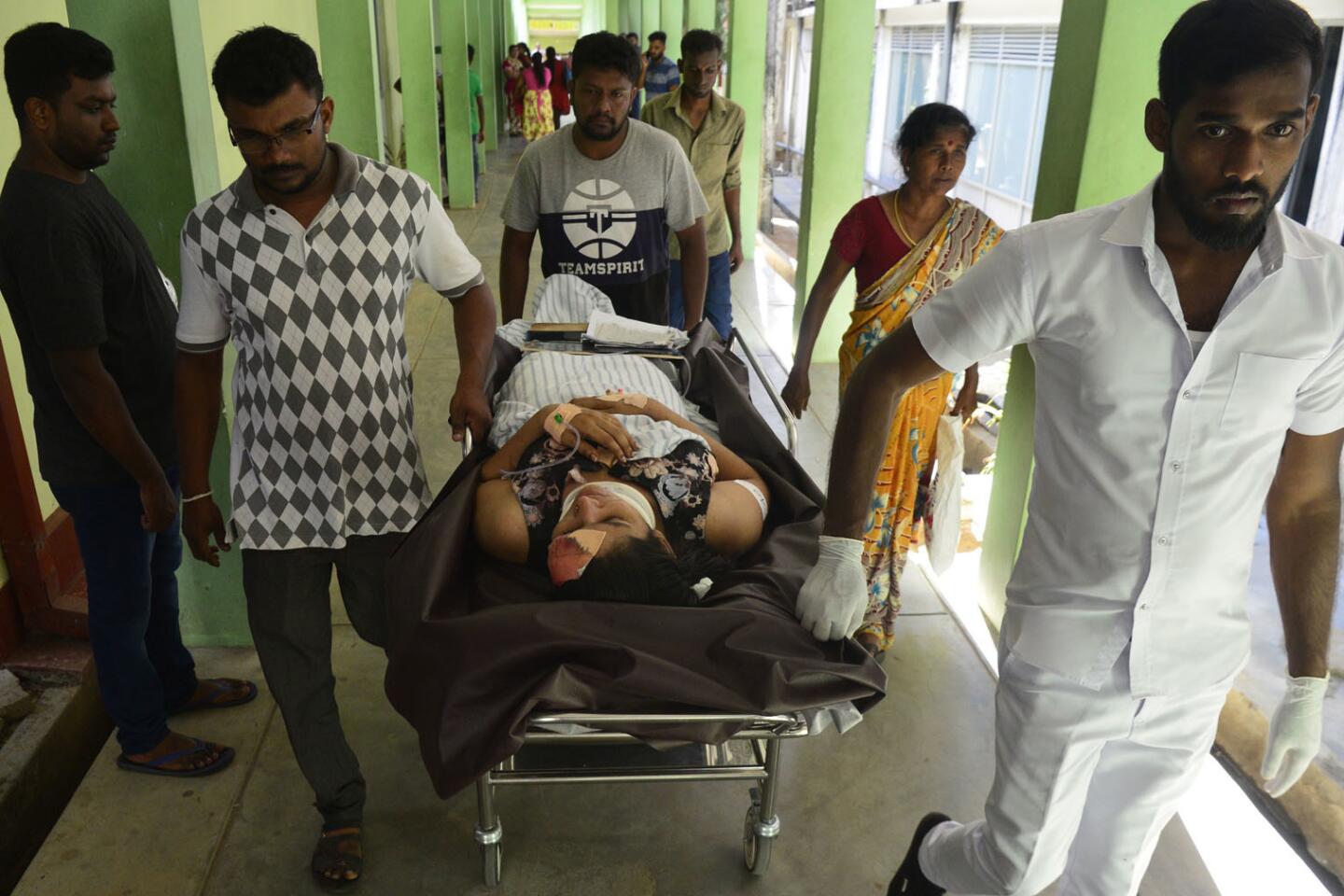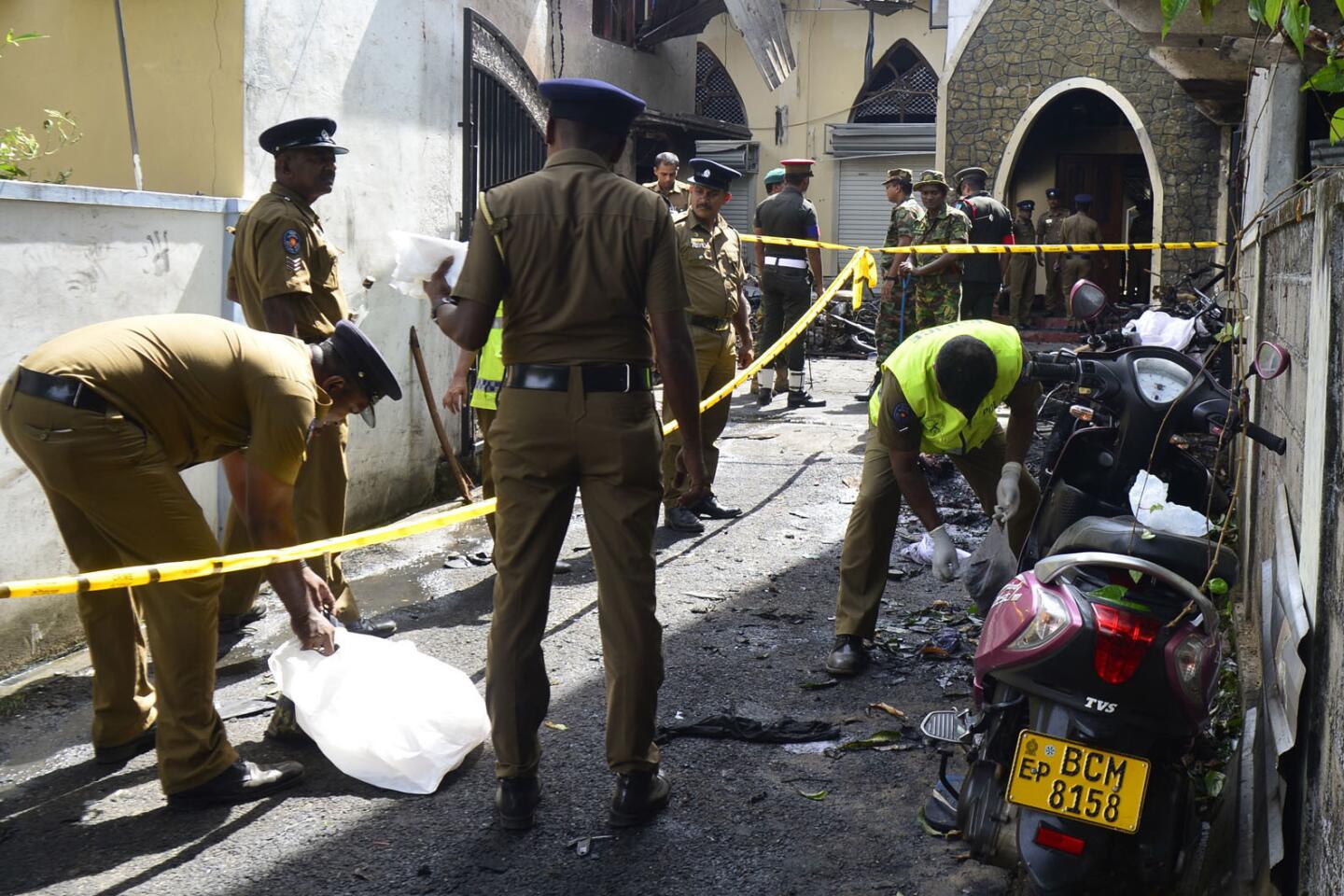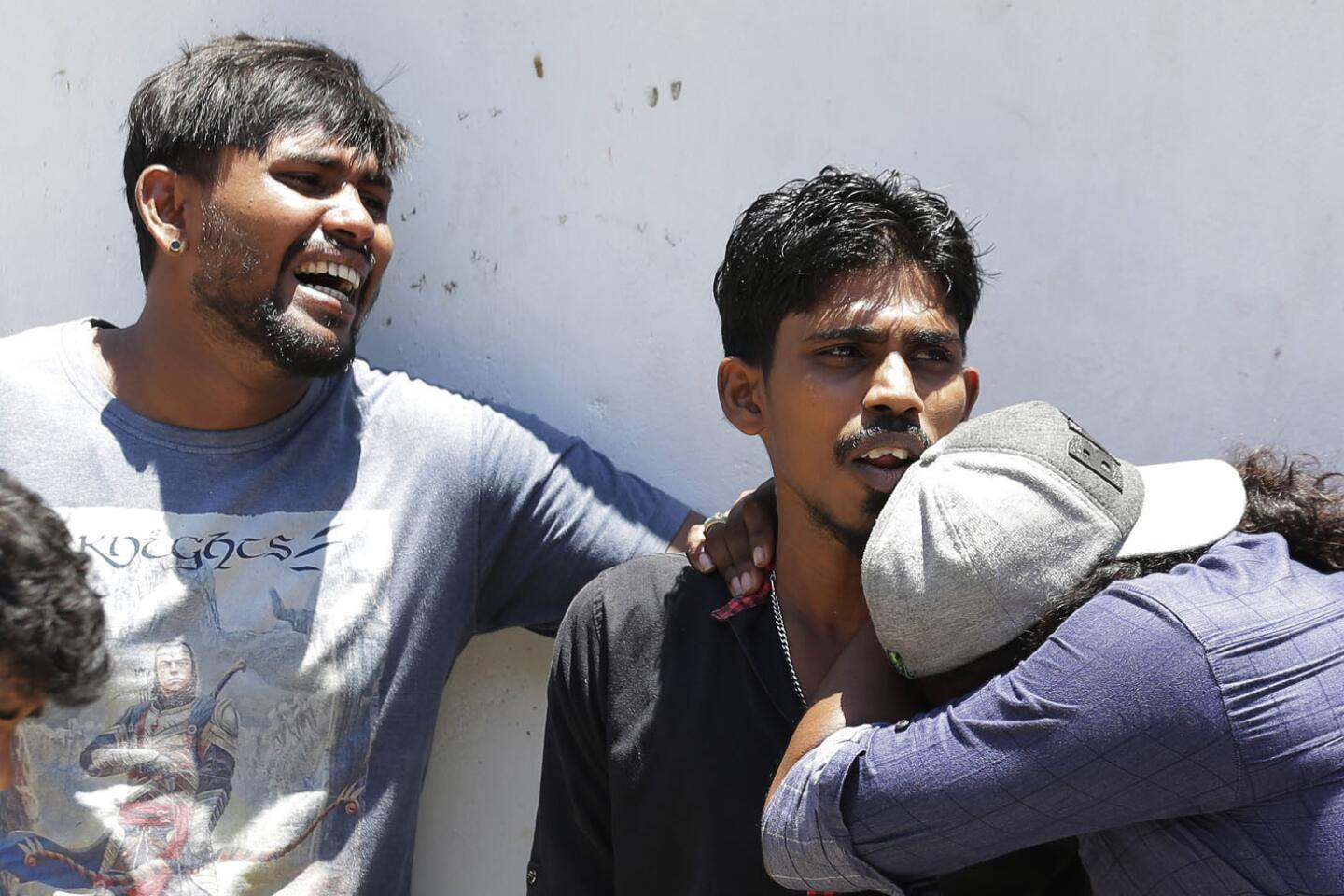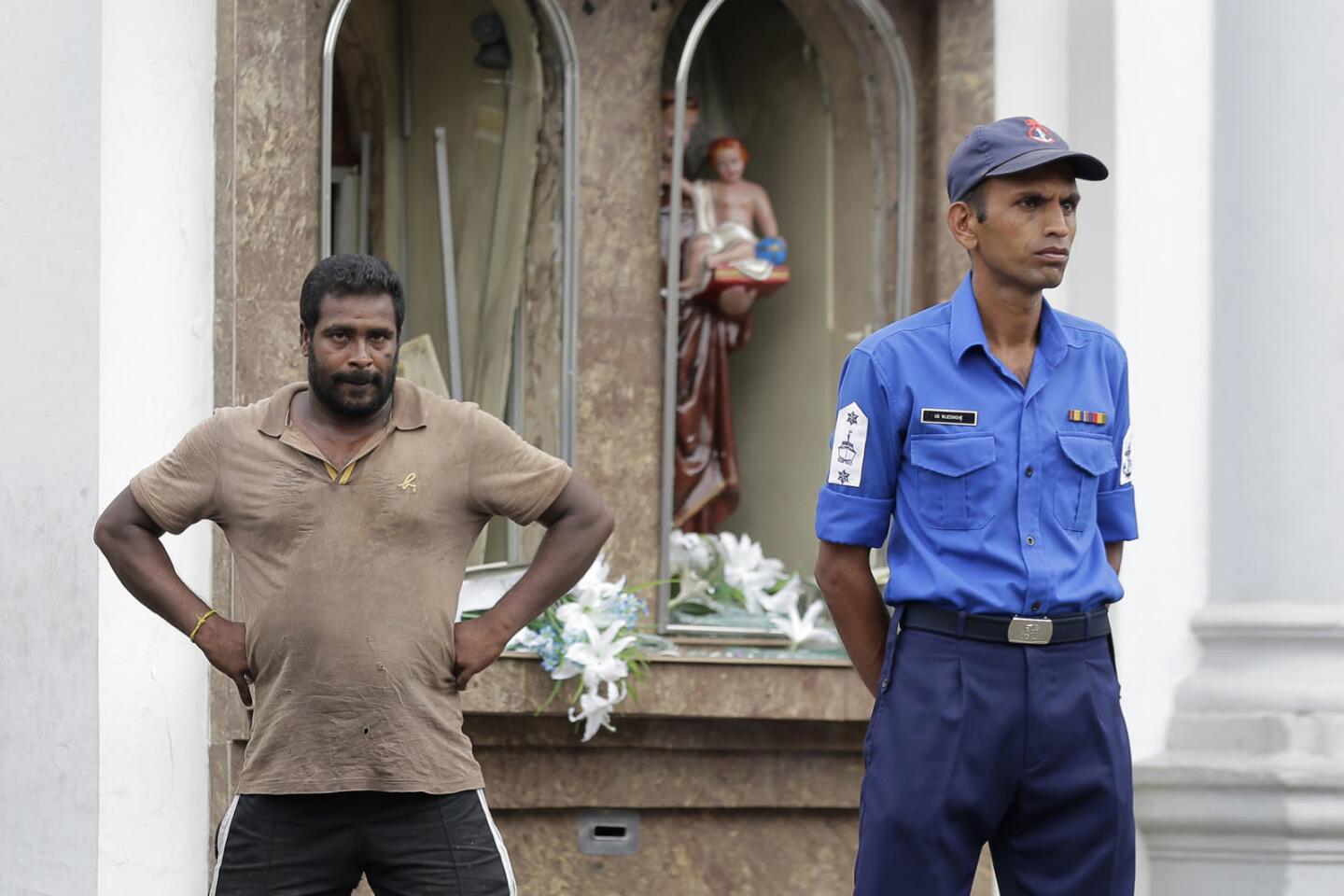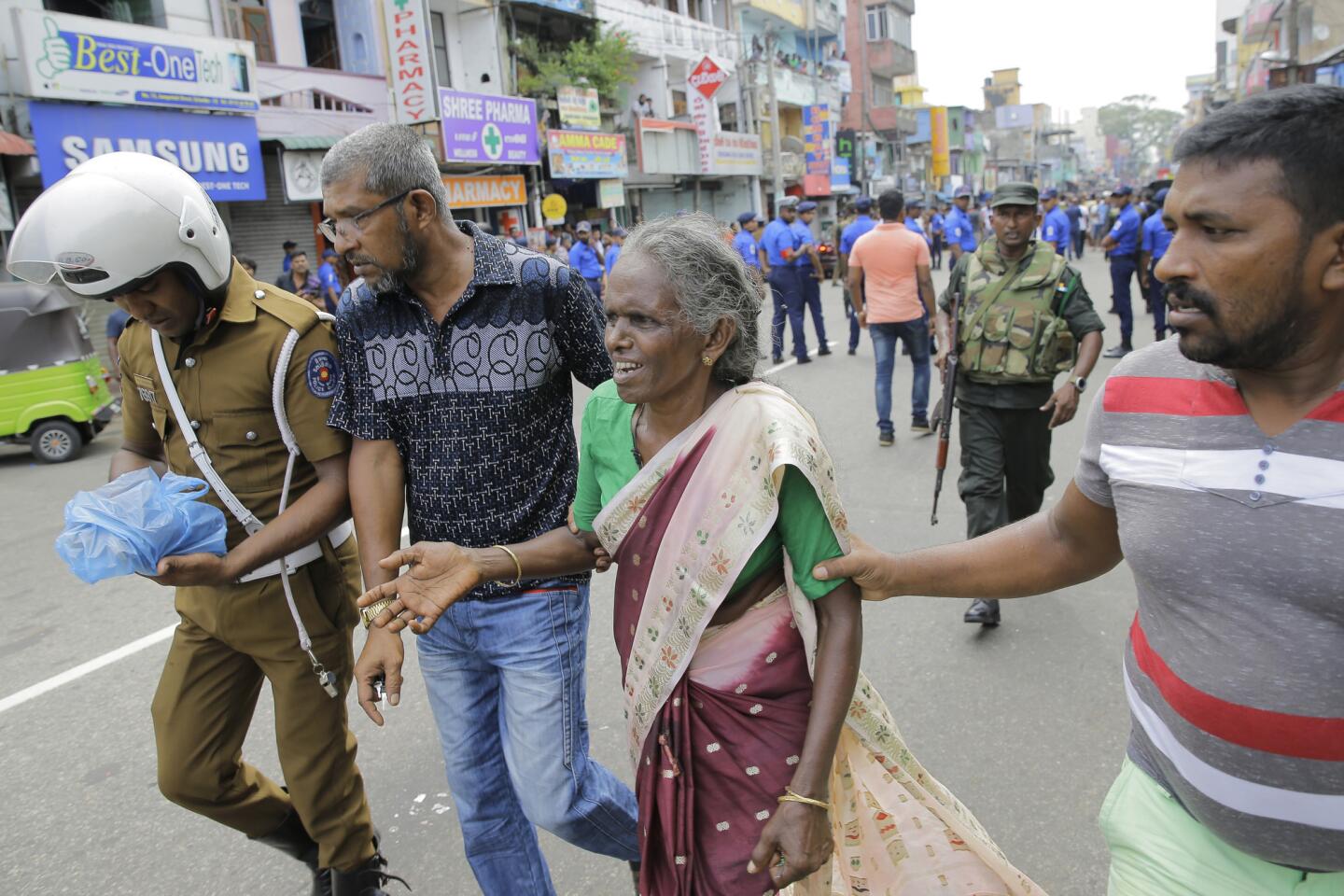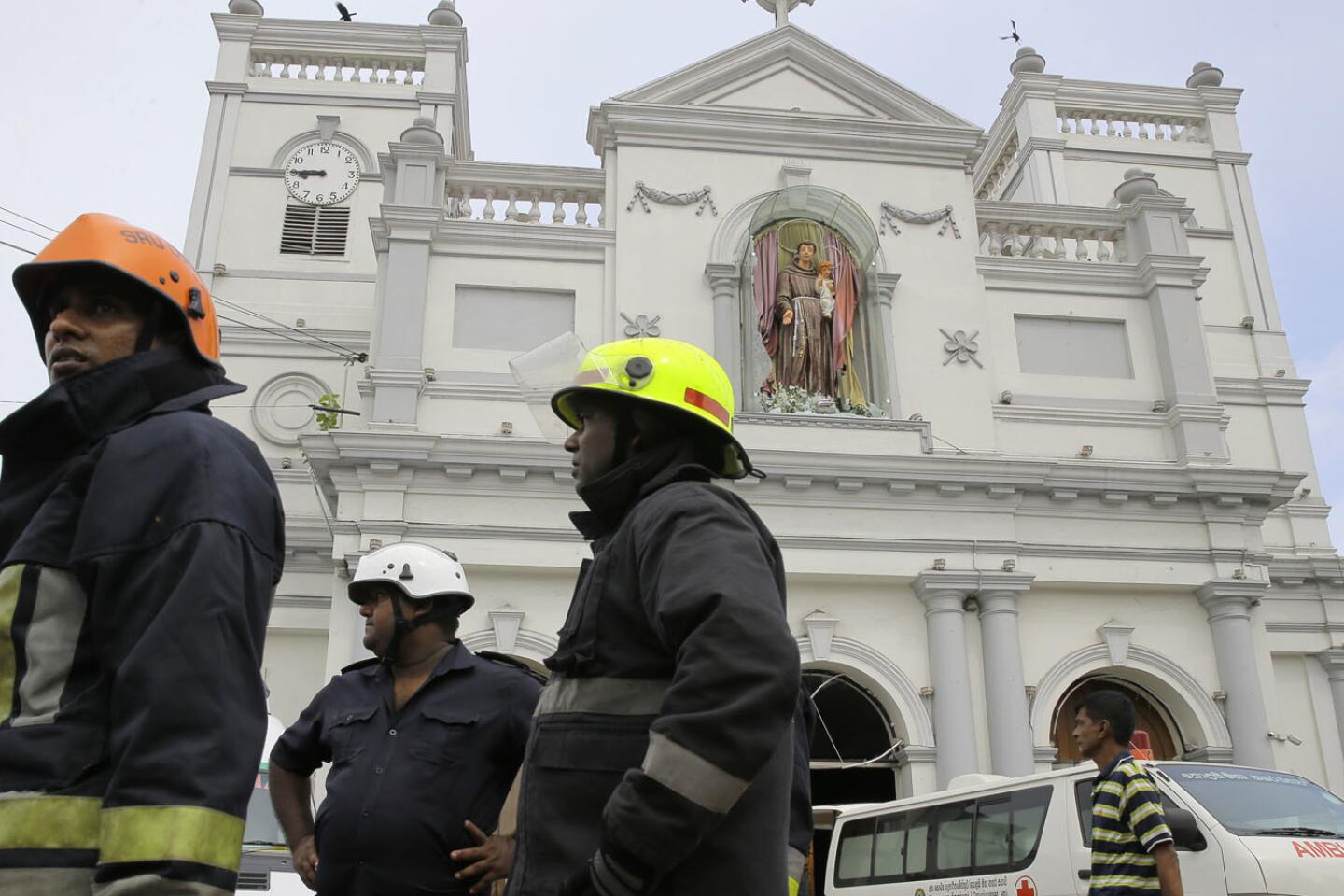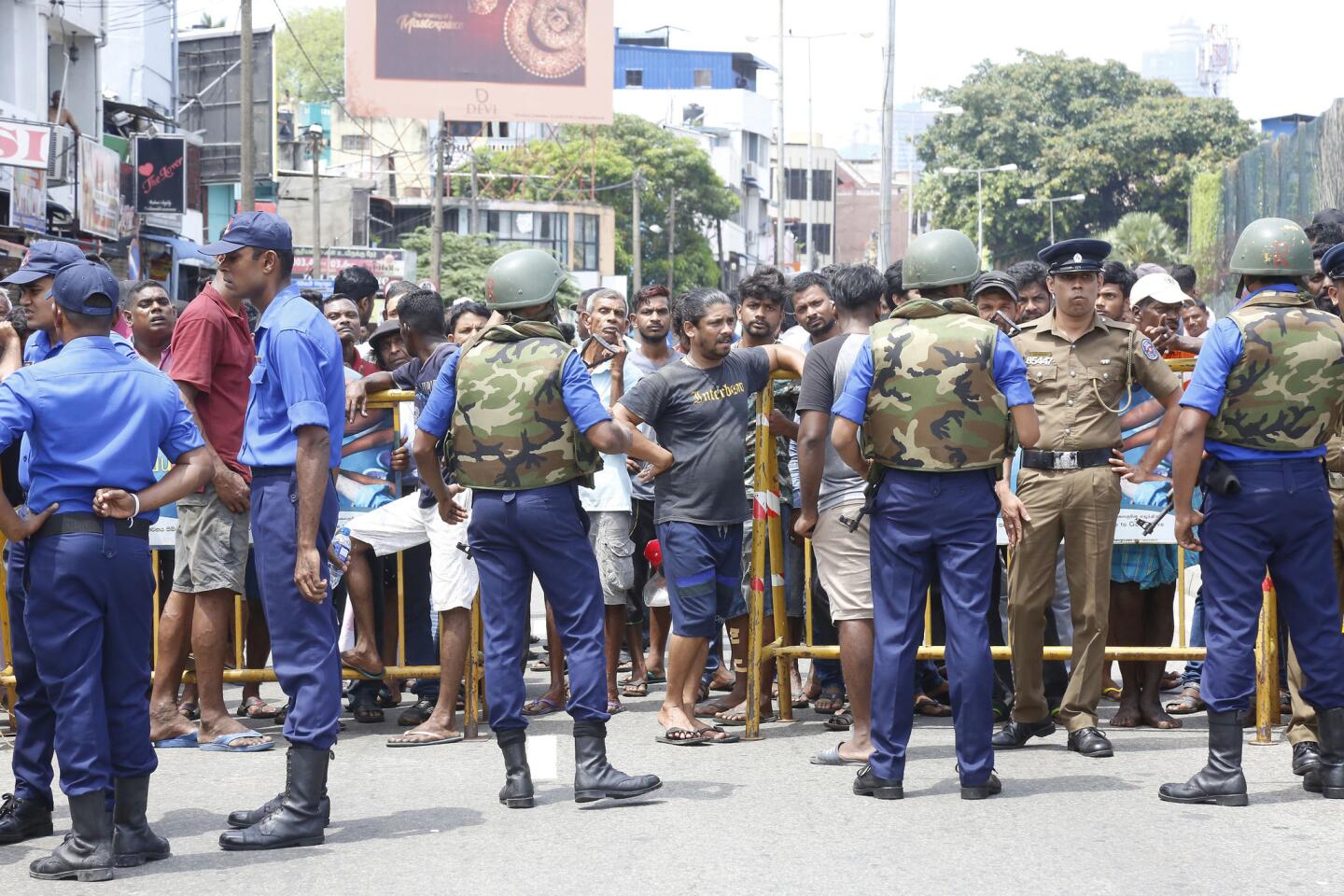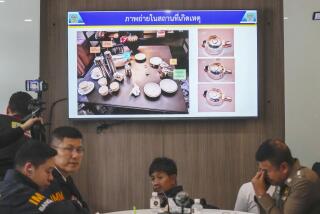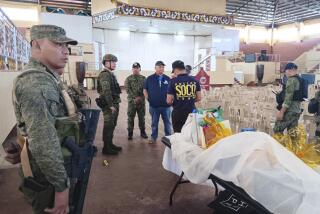290 killed in Easter Sunday explosions in Sri Lanka. Americans are among the dead
- Share via
Reporting from COLOMBO, Sri Lanka — A mother and daughter, in their Sunday best, took a taxi to Easter Mass on Sunday morning at St. Anthony’s Shrine, a stately Catholic church near the heart of the Sri Lankan capital. Their driver, P. Ranasinghe, was parked a few feet away having tea when a thunderous explosion shook the 19th century church.
The next thing he heard were the screams of worshipers racing out of the colonnaded doorways as black smoke poured from the church. Ranasinghe remembered seeing red — the bloodstains spread across the clothing of the congregants, most of them women, as they fled.
His two passengers survived; they were among the fortunate. The explosion at one of the country’s most beloved Christian sites was one of six blasts that ripped through churches and luxury hotels minutes apart on Easter Sunday morning, leaving 290 people dead and wounding at least 500 in Sri Lanka’s deadliest day of violence since the end of a long civil war a decade ago.
At least 27 of those killed at the Shangri-La, Kingsbury and Cinnamon Grand hotels were foreign nationals, said officials, who had determined that most of the six attacks were suicide bombings. Among the victims were “several U.S. citizens,” said Secretary of State Michael R. Pompeo, in a statement.
“The United States condemns in the strongest terms the terror attacks in Sri Lanka on Easter morning,” Pompeo said. “Attacks on innocent people gathering in a place of worship or enjoying a holiday meal are affronts to the universal values and freedoms that we hold dear, and demonstrate yet again the brutal nature of radical terrorists whose sole aim is to threaten peace and security.”
Explosions targeted Easter services at St. Sebastian Catholic Church in Negombo, a Catholic town north of Colombo, the seaside capital, and at a Protestant church in Batticaloa, on the island nation’s eastern coast. The violence battered a small and beleaguered Christian community in an overwhelmingly Buddhist country that has often struggled to protect its religious minorities.
Bombs also exploded around the same time in the restaurants of three five-star hotels in Colombo, symbols of the economic boom Sri Lanka has enjoyed since the war ended — becoming better known for its sparkling Indian Ocean beaches and piquant food than for separatist violence.
“Horrible scenes. I saw many body parts strewn all over,” tweeted Harsha de Silva, the minister of economic reforms, who visited St. Anthony’s and the Shangri-La soon after the attacks.
Two other blasts occurred later Sunday on Colombo’s southern outskirts as police searched a suspected safe house.
No group immediately claimed responsibility for the blasts. Prime Minister Ranil Wickremesinghe said late Sunday that intelligence officials had received information about a possible attack but indicated that his government had not been informed of the threat.
“We must look as to why adequate precautions were not taken,” Wickremesinghe said at a news briefing. In an earlier statement, he had called for national unity and described the attacks as “an attempt to make the country and its economy unstable.”
Sri Lankan authorities said they had arrested 24 suspects. Police also said they had seized an abandoned white minivan from Colombo’s southern outskirts that they believed was used to ferry attackers.
“There is no room for any sort of extremism in the country, and we will take necessary action to stop such groups from operating in Sri Lanka,” Ruwan Wijewardene, the junior defense minister, said at a news conference in Colombo.
“The police are currently conducting investigations, and all culprits will be taken into custody as soon as possible.”
The archbishop of Colombo, Cardinal Malcolm Ranjith, said it was “a very, very sad day for all of us.”
“I call upon all to pray,” Ranjith said, “that all those who are injured may be healed soon and that all these families who have lost someone may be consoled.”
All Masses in Colombo were canceled, and police declared a nationwide curfew. The government also blocked Facebook, WhatsApp and the Viber communications app, apparently to block the spread of rumors and fake news after the attacks.
Expressions of sympathy poured in from leaders around the world. Pope Francis, giving his traditional Easter Sunday blessing at St. Peter’s Basilica, expressed his “loving closeness to the Christian community, targeted while they were gathered in prayer.”
“I entrust to the Lord all those who were tragically killed and pray for the injured and all those who are suffering as a result of this dramatic event,” Francis added.
At the Shangri-La hotel on Colombo’s renowned Galle Road, a sea-facing highway dotted by high-end hotels, embassies and colonial-era government buildings, singer Sarita Marlou said she was sleeping in a room on the 17th floor when she felt the force of the blast. Everyone inside was ordered to evacuate, and when Marlou raced down the stairwell to the exit she “saw a lot of blood on the floor but we were still clueless as to what really happened,” according to a post she wrote on Facebook.
Another guest, Mar Silverio, wrote that he was “terrified to see a lot of hotel staff carrying wounded colleagues, guests and some bloody bodies on stretchers to the waiting ambulance.”
Gory images of mangled limbs and bloodied pews filled the airwaves in the small island nation off the southern tip of India, triggering memories among some of the worst days of the 26-year civil war between government forces controlled by the Sinhalese ethnic majority and Tamil separatists.
During that conflict, the so-called Tamil Tiger rebels became ruthless pioneers of suicide bombing, massacring security forces and civilians at police stations, bus stations, jungle camps, banks and mosques. The Tigers, banned as a terrorist organization by dozens of countries including the U.S., were a secular group whose members were mainly Hindu.
At the time, human rights groups also accused government forces of killing and abducting masses of rebels and Tamil civilians, especially in the closing weeks of the war under the leadership of then-President Mahinda Rajapaksa.
Sri Lanka emerged from the conflict and began to rebuild its economy, but ethnic and religious chauvinism also began to take root among hard-liners in the Sinhalese Buddhist community, which makes up about three-quarters of the country’s 21 million people.
Much of the violence has targeted Muslims, the largest religious minority, which helped unseat Rajapaksa at the polls in 2015. But the unstable coalition government that followed has also failed to protect minorities. Last year, Buddhist extremists led riots against Muslim-owned businesses and mosques in the hill city of Kandy, leaving two people dead.
Sri Lanka’s roughly 2 million Christians, the vast majority of them Roman Catholic, have also been targeted by radical Buddhists and ethnic Sinhalese leaders. Since 2015, the National Christian Evangelical Alliance of Sri Lanka, an umbrella group of Christian organizations, has recorded nearly 350 cases of violence, intimidation, threats and demands to close places of worship.
St. Anthony’s, perhaps the most iconic church in the country, has been declared a national shrine and visited by Sri Lankans of all faiths. It is said that a piece of St. Anthony’s tongue is kept in a glass case at the church’s entrance, along with a statue of the saint.
Mario Gomez, executive director of the International Center for Ethnic Studies, a Colombo think tank, said Sunday’s attacks were unprecedented for Sri Lanka, even with its history of religious turmoil, and aimed to send a global message.
“We’ve seen attacks on Muslims and Christians orchestrated by local groups,” Gomez said. “But this violence is of a qualitatively different nature. In terms of scale and magnitude, we’ve never seen anything like this before.”
Special correspondent Mushtaq reported from Colombo and Times staff writer Bengali from Singapore.
More to Read
Sign up for Essential California
The most important California stories and recommendations in your inbox every morning.
You may occasionally receive promotional content from the Los Angeles Times.
